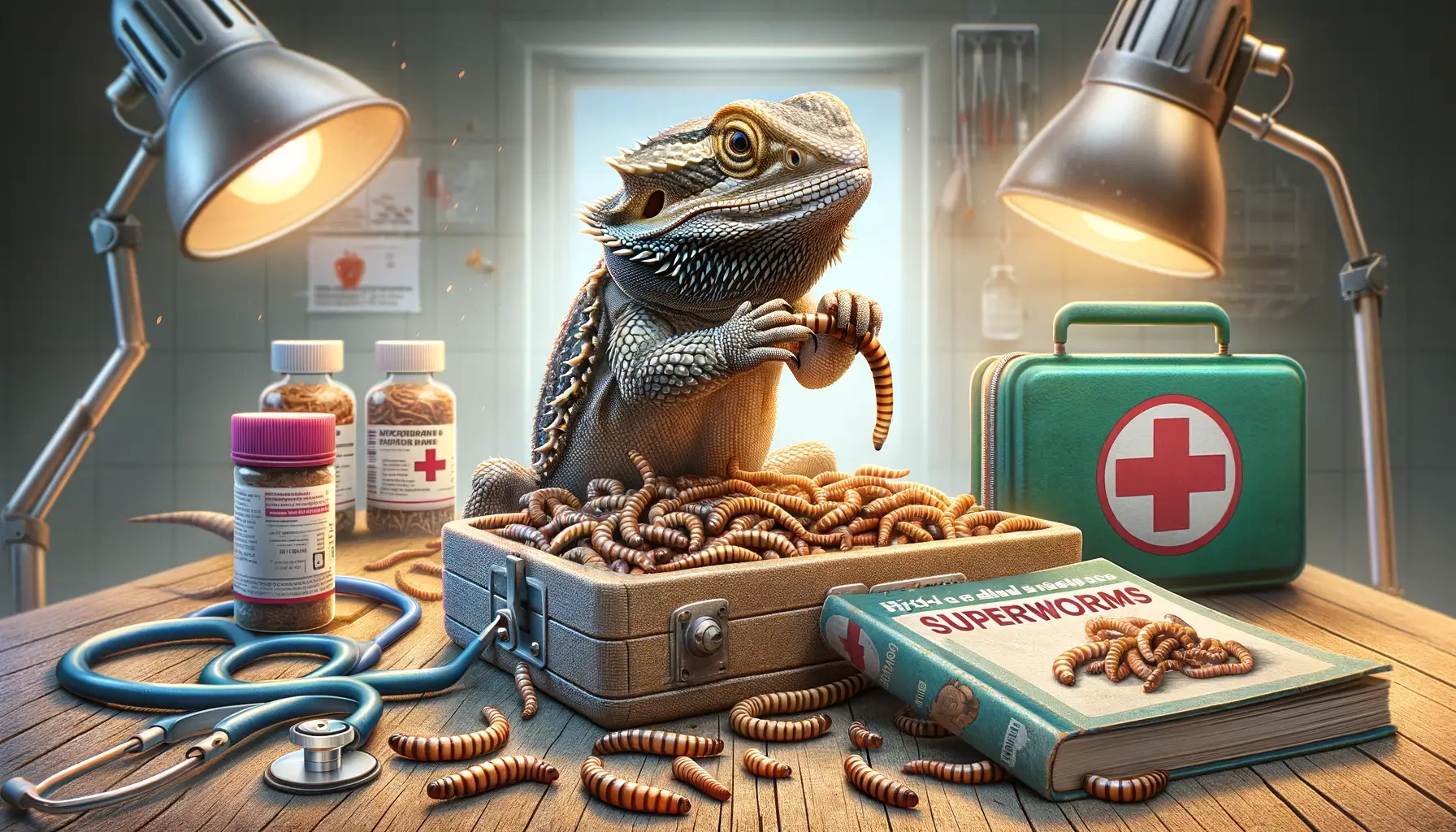Imagine you’ve just brought home a new bearded dragon and are thrilled to start feeding it a healthy diet of superworms. But you’ve heard some alarming stories about these wriggly creatures causing harm or even death to these beloved reptiles. It’s a scary thought. While it’s true that superworms can pose a danger if not correctly handled, with the proper knowledge, you can protect your bearded dragon from any potential harm. You need to know some crucial safety tips, which we’ll discuss further.
Superworms & Bearded Dragon
When considering your bearded dragon’s diet, superworms emerge as a substantial and nutritious food source packed with beneficial proteins and fats. These critters, also known as king worms, morio worms, or zophobas, are a species of darkling beetles. They’re larger and have a more complex exoskeleton than mealworms, making them a more wholesome meal option for adult bearded dragons.
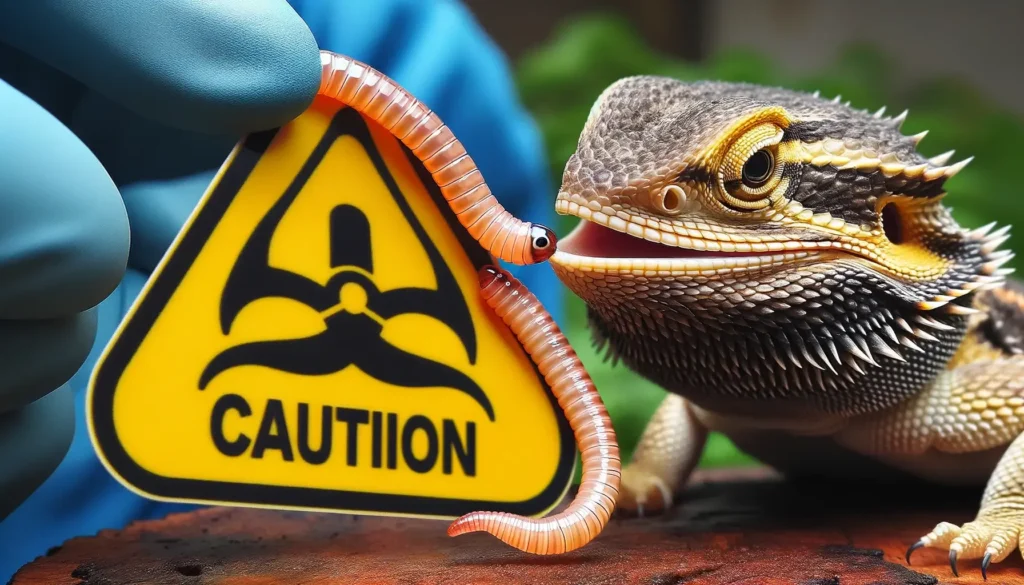
You might wonder, “What’s the nutritional value of these wriggly snacks?” Well, they’re a powerhouse of nutrients. A single superworm is approximately 58% moisture, 19% protein, 14% fat, 3% ash, and 6% other nutrients. This makes them an excellent hydration, protein, and fat source for your beardie.
However, moderation is key. Superworms should only make up 10-20% of the bearded dragon’s diet. Why? They’re high in fat, and overfeeding can lead to obesity and other health issues. Additionally, their hard exoskeleton can be challenging for some beardies to digest.
The Controversy Around Superworms
Despite their nutritional benefits, why are superworms controversial among bearded dragon owners? The answer lies in the various misconceptions and half-truths circulating in the pet community.
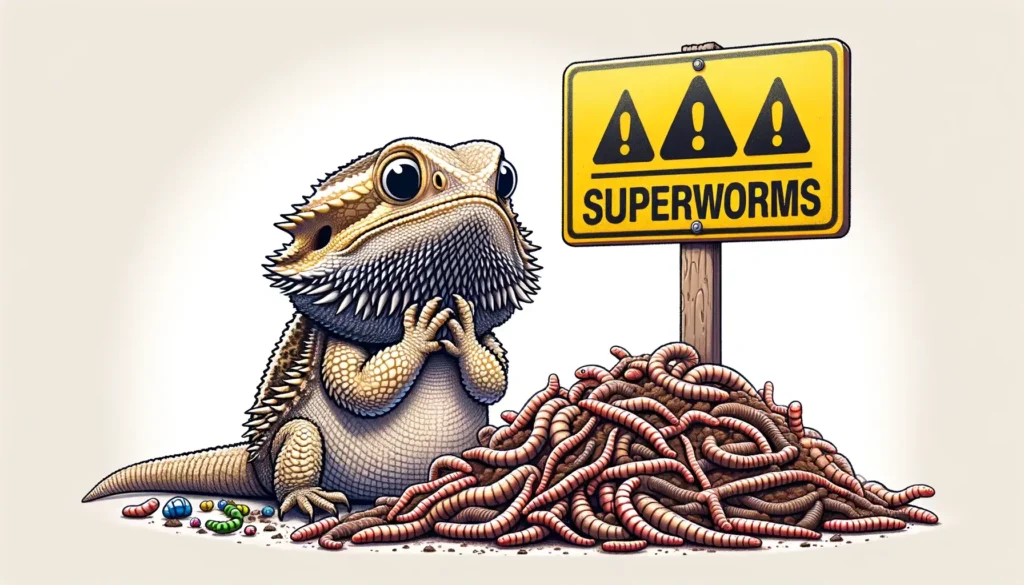
The controversy mainly revolves around these four aspects:
Superworms’ Nutritional Value: Although superworms are high in protein, they also contain a fair amount of fat. This has led to debates on whether they’re healthy for bearded dragons.
Feeding Frequency: The frequency of feeding superworms to bearded dragons is another point of contention. While some owners believe in daily servings, others advocate a more moderated approach. Digestibility: Bearded dragons are believed to have difficulty digesting the tough exoskeletons of superworms.
Aggression: There’s an ongoing myth that superworms can bite or harm a bearded dragon from the inside, causing fear among some owners.
Potential Risks of Feeding Superworms
While the controversy around superworms continues, it’s crucial to understand the potential risks associated with feeding these insects to your bearded dragon. Superworms, though high in protein, also have an elevated fat content. If they form a significant part of your pet’s diet, this could potentially lead to obesity and related health issues.
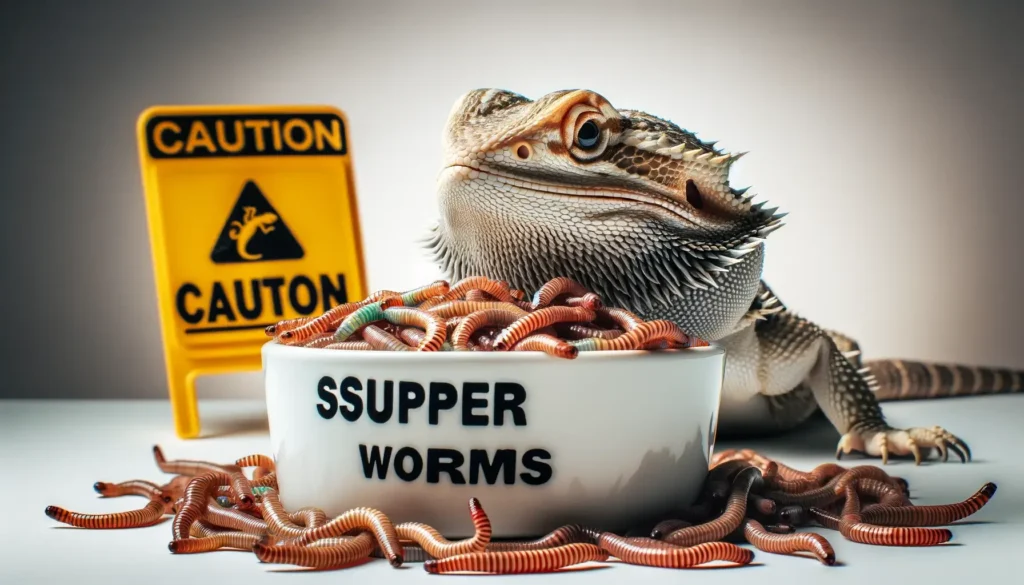
One primary concern is impaction, a potentially fatal condition where indigestible material blocks the gut. Superworms have a tough exoskeleton, or chitin, which makes it hard for the bearded dragon’s digestive system to break down. This could accumulate in your pet’s intestines and lead to impaction, especially if your dragon is dehydrated or the temperature in its habitat isn’t optimal.
Another risk is that superworms can bite. They have strong mandibles and, if swallowed alive, could harm your pet. The bites are not usually dangerous but can cause discomfort or stress.
Safely Incorporating Superworms Into Diet
So, how can you safely incorporate superworms into your bearded dragon’s diet without risking its health? First and foremost, consider the age of your bearded dragon. Superworms are high in fat and protein, making them suitable for younger dragons that need a growth boost. However, due to their high-fat content, super worms should be given sparingly to adult dragons.
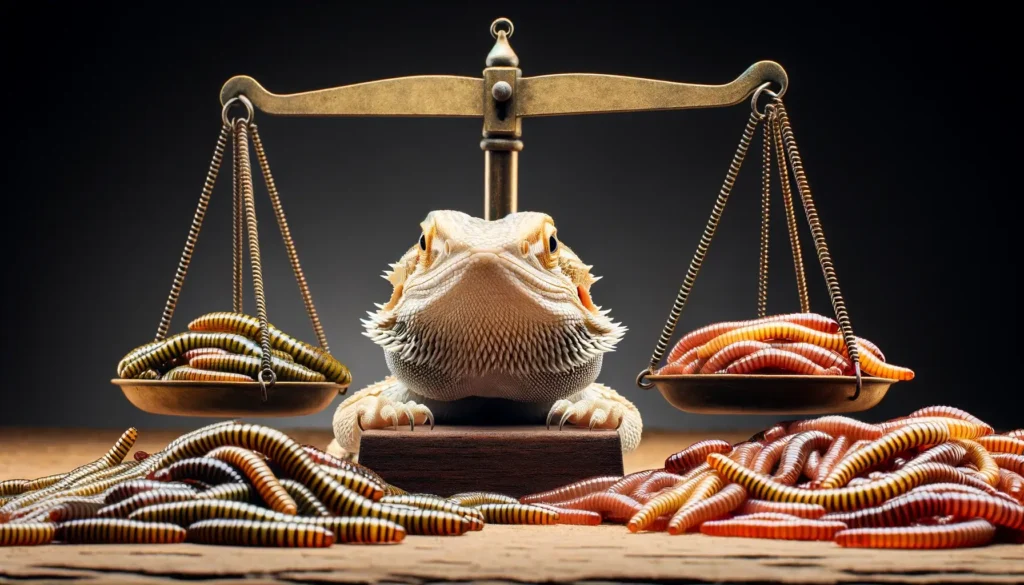
When introducing superworms, moderation is key. Too many can lead to obesity and other health issues. Also, always remember to feed superworms appropriate for your dragon’s size. A good rule of thumb is never to feed your dragon anything more significant than the space between its eyes.
Here are some additional tips for safely incorporating super worms into your dragon’s diet:
- Always serve superworms alive to stimulate your dragon’s hunting instinct.
- Dust the superworms with calcium and vitamin supplements to balance their nutritional content.
- Occasionally substitute superworms with other protein sources like crickets or dubia roaches.
- Ensure your dragon can access plenty of fresh veggies, as superworms alone won’t provide a balanced diet.
Essential Safety Measures for Owners
When handling superworms for your bearded dragon, you must adhere to specific safety measures to ensure both your and the dragon’s well-being. This starts with the careful handling of superworms. Use gloves to reduce the chance of getting bitten, as their bites can be painful.
Monitoring the number of superworms you’re feeding your dragon is also critical. Overfeeding can lead to obesity, which can cause health problems. As a rule, provide only what they can consume in 15 minutes. Remember, superworms are a treat, not a staple.
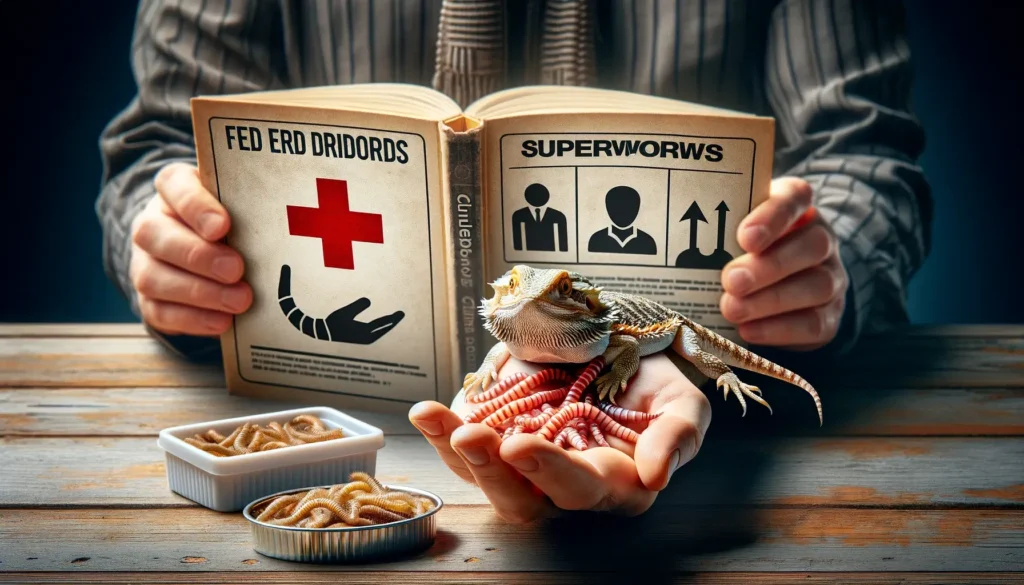
Next, quarantine new superworms for 24 hours before feeding them to your pet. This ensures that any potential toxins or parasites are neutralized.
Lastly, never leave uneaten superworms in the tank. They can burrow and pupate, emerging as darkling beetles, which can cause stress and potentially harm your dragon.

